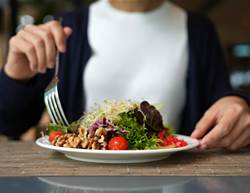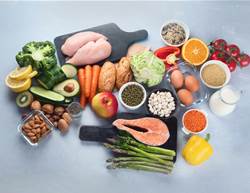Food is fuel for the body, providing the nutrients cells, organs and tissues need to function at their best. It also keeps energy steady through the day and helps dodge the afternoon slump. Not all foods deliver the same lift, so it pays to fill your plate with options that power you up and keep you going.
Dietitians note that the right choices can support overall health while delivering both quick and sustained energy. Below is a smart pick to help combat fatigue and keep you firing on all cylinders.
1. Lean beef
Lean beef is a powerhouse for fighting fatigue and supporting steady energy. It’s rich in highly bioavailable iron, which helps oxygen travel around the body. Iron is needed to make haemoglobin, the protein in red blood cells that carries oxygen to working muscles and organs. Getting enough iron can help prevent anaemia, a common cause of tiredness in women.
Beef also contains L-carnitine, an amino acid studied for its potential to reduce fatigue in certain conditions, including hypothyroidism and chronic fatigue syndrome. It’s a useful source of vitamin B12 too, which supports nerve health and energy metabolism.
Choose lean cuts such as sirloin or tenderloin to keep saturated fat in check. Team with whole grains like quinoa or brown rice and plenty of colourful vegetables for a balanced, nutrient-dense meal.
2. Chickpeas
Chickpeas are a nutrient-dense legume with one standout for fighting fatigue: zinc. This essential mineral supports cell growth and repair, helps temper inflammation, backs immune function and enables muscles and enzymes to work properly. Adequate zinc has been linked with reduced fatigue in older adults.
They also deliver complex carbohydrates, fibre and plant protein for a slow, steady release of energy rather than the spike-and-crash you get from refined carbs. Toss through salads, blitz into dip or stir through soups and curries.
3. Mushrooms
Mushrooms can support energy in a few ways. UV-exposed varieties are a rare plant source of vitamin D, and low vitamin D is associated with tiredness, so getting enough may help. Mushrooms also supply B vitamins such as riboflavin and niacin that help convert food into usable energy. Try adding a handful to omelettes, stir-fries or pasta sauces.
4. Kiwis
Kiwifruit pack a serious vitamin C hit along with antioxidants and fibre. Vitamin C deficiency is linked with fatigue, so meeting daily needs matters for staying switched on. Both green and gold-flesh kiwifruit are rich in vitamin C—choose whichever you enjoy and slice over yoghurt, porridge or salads for a bright lift.
5. Macadamia nuts
Macadamias deliver heart-healthy fats for slow, steady energy rather than a sugar spike and crash. They’re also rich in thiamine (vitamin B1), which helps convert food into energy and supports healthy nerve signalling. Low thiamine can leave you tired and foggy. Sprinkle a small handful over porridge or salads for a satisfying lift.
6. Bananas
Bananas are an easy grab-and-go energy boost. Their mix of carbohydrates, natural sugars and fibre provides a sustained release of fuel, while potassium supports normal muscle function and helps ward off cramps after exercise. Slice over yoghurt, blitz into a smoothie or pair with nut butter for staying power.
7. Kefir
Kefir is a fermented milk drink with probiotics, protein and B vitamins, especially B12, which help the body turn food into energy. A healthy gut microbiome also improves nutrient absorption, supporting steadier energy across the day. Choose unsweetened kefir to avoid added sugars and enjoy it straight, over muesli or in a smoothie.
8. Sweet potatoes
Sweet potatoes deliver complex carbohydrates that release glucose slowly, giving longer-lasting energy and helping to prevent the post-snack crash. They’re also rich in potassium, an electrolyte that supports normal muscle function and can ease post-workout tiredness. Add roasted cubes to salads, blitz into soups or use as a base for a grain bowl.
9. Spinach
Spinach is loaded with iron, magnesium and potassium—key nutrients for fighting fatigue. Iron supports red blood cell production to carry oxygen around the body, while magnesium plays a role in muscle health and energy production, per research. Toss into salads, blend into smoothies or sauté with garlic for a quick side. Its mild flavour makes it easy to add anywhere.
10. Eggs
Eggs pack quality protein along with iron and B vitamins, including B12. They also contain leucine, an amino acid linked with turning stored energy into usable fuel; a study found it can boost energy output at the cellular level. Serve scrambled, boiled or folded into salads and grain bowls for an easy, energising meal.
11. Oats
Oats earn their breakfast spot for a reason. They’re rich in complex carbohydrates that digest slowly, giving a steady release of energy through the day. That helps avoid sharp rises and falls in blood sugar, especially when you pair oats with a protein source such as nut butter. They’re also high in dietary fibre, particularly beta-glucan which may support healthy blood sugar levels in some people, according to research.
Use oats in warm porridge, blitz them into smoothies or bake them into muffins and muesli bars.
12. Apples
Apples deliver natural carbohydrates for a quick lift, plus fibre that slows the release of sugars into the bloodstream for more sustained energy. They also contain quercetin, an antioxidant linked with better endothelial function, meaning blood vessels can deliver oxygen and nutrients more efficiently. That may support energy and help reduce fatigue.
Eating for energy: The bottom line
Supporting energy through food might be the missing piece in your fatigue-fighting plan. Build your plate around nutrient-dense staples—think lean beef, chickpeas, mushrooms, kiwifruit and bananas—to deliver iron, B vitamins, complex carbs and antioxidants that help sustain stamina.
Diet is only one part of the puzzle. A single nutrient-dense food here and there won’t shift the dial if the rest of your routine is off. Aim for a consistent, well-rounded way of eating alongside good hydration, regular movement, solid sleep and stress management to support steady energy and overall wellbeing. If tiredness persists, see your GP or another health professional to rule out an underlying condition.









